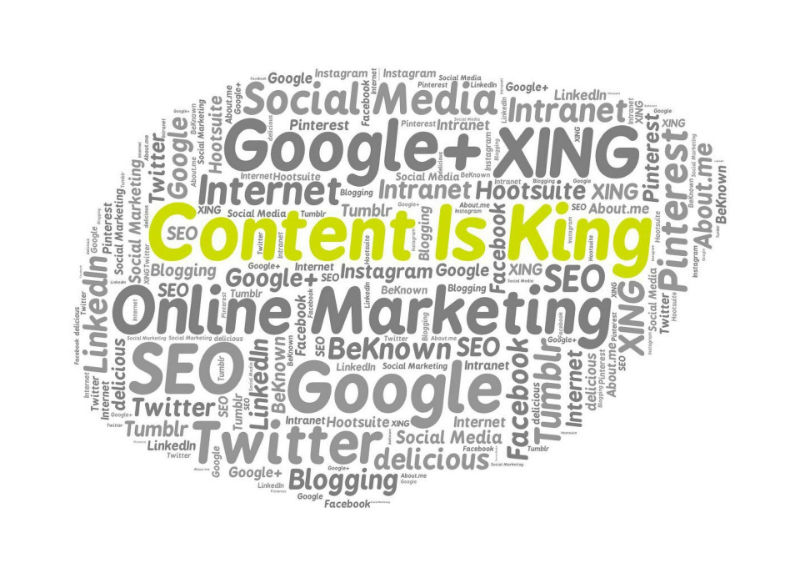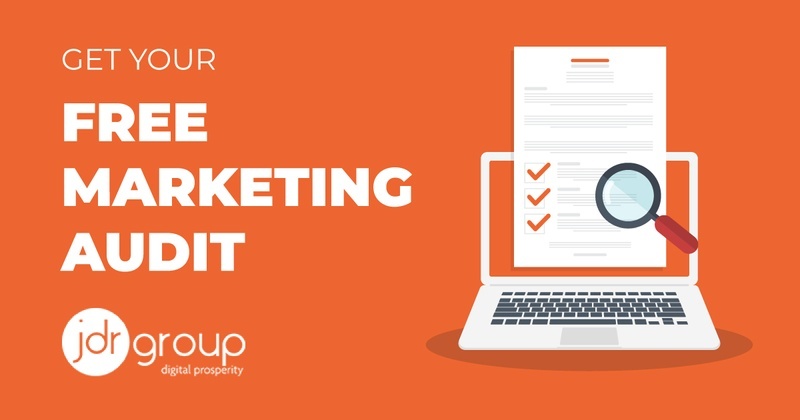5 SEO Steps To Improving Your Business Sales
by Daniel Baker on 17-Dec-2020 14:20:00

Many business owners fall into the irresistible trap of believing that SEO is a "quick fix" to help your business bag dozens more online sales. As nice as this sounds, this aspiration is unrealistic and short-sighted, especially in light of how intelligent Google's algorithms are in this day and age.
While it's true that effective SEO tactics can improve your sales strategy, it's important to keep in mind that search engines take time to rank and index websites, having to scour billions of them periodically to determine relevancy.
Search Engine Optimisation (SEO) cannot create a demand for your product or service; SEO tactics can however streamline your online strategy to ensure your business is targeting genuine prospects with a real potential to buy.
So, to put it simply, SEO tactics and selling go hand-in-hand like scones and cream. Continue reading this article for 5 sustainable SEO strategies that will not only help you increase sales, but also help you build a better brand profile online.
Step 1) Join The Dots
You must first wrap your head around the fact that SEO is not an add-on. SEO is the backbone of your marketing strategy. SEO forms the basis of your website design and conversion strategy, content production and social media strategy.
Haphazardly focusing on certain aspects of SEO while ignoring others will not improve your business sales. You must take a well-rounded approach and follow all the tips below to see desirable results in the long-term.
Step 2) Make Sure Your Website Is Readable
Google is far more likely to promote a website with a great user experience (UX) rating and low bounce back rate. The greater your website's search engine visibility the greater the likelihood of sales.
The following factors impact UX:
- Simple menu structure and page layout
- Break up your content with subheadings and bullet points (easy to read font and colours, decently sized images / videos that are the correct resolution)
- Make use of white space so pages look uncluttered
- Ensure your CTA (call-to-action) such as "book an assessment" or "download our FREE ebook / voucher code" appears on every page and is above the fold (this means the customer doesn't need to scroll down the page to see it on the site)
Step 3) Content Is King
Content is the key to effective sales. You must highlight the benefits of your product / service and make people want to buy it. You can do this through high-quality images and videos, detailed descriptions including specifications and USP (remember, customers love to know what they are getting for their hard earned cash), as well as blog articles / infographics that answer your customers' FAQs. The more detail and visual information you can give about a product / service the higher the chance of a sale.
Social media sharing links attached to your product pages / blogs are another fantastic way to push your content further afield, which in turn will drive more sales.
Step 4) Relevant Keywords & Meta-Descriptions
Each individual page on your website should make use of appropriate keywords and meta-descriptions. These keywords should appear naturally. Avoid keyword stuffing as Google will penalise you for this.
Rule one when it comes to keywords is don't assume. Keywords tend to be the names of your products and services, or the brands you special in. Nevertheless, sometimes your customer won't know the specific name for the service / product you offer, and therefore they might type in something similar. For example, most marketing agencies offer a service called PPC (Pay-Per-Click) but most people unfamiliar with the term would search for "paid advertising" or "paid search ads". For this reason, you must be careful when selecting relevant keywords (especially ones that can be abbreviated or said in various ways) otherwise you'll miss the boat entirely.
Online users searching the web will also use 'commercial intent modifiers' to refine their search such as best, cheap, buy online, discount or brand names. Writing content that appeals to these search terms will boost the number of sales for your business - however don't say your product is "cheap" when it's not, as this will create a sense of dishonesty.
Step 5) Relevant URL Structure
URL structure is especially importance for ecommerce businesses. Customers will downright refuse to buy from sources that look out-dated or untrustworthy.
Quick question, would you enter your card details on a URL link that was just a domain name followed by a long-string of random letters? www.website.co.uk/wofn0438kij.index
Would you trust a website that wasn't HTTPS secure? Read this article for further information - Why Now Is The Time To Make The Switch To HTTPS
Poor URL structures make it virtually impossible for Google to understand what the page is about before it loads. A good, user-friendly URL should be concise and indicate what the content is about - www.website.co.uk/bathroomdesigns
Interested To Learn More?
SEO is a huge topic covering many avenues. Read the following articles for further information on how SEO can push your sales strategy to a new level:
- SEO, PCC & Social Media - Which Is Best For Me?
- Are You Breaking These 6 SEO Cardinal Sins?
- When To Use & When Not To Use SEO
Are you unsure about your current SEO strategy? Have your sales stayed the same or dropped over the last few years? Contact the JDR Group today for a FREE 20 minute, no-obligation online assessment of your marketing strategy to help your business pinpoint areas for improvement!
- Inbound Marketing (SEO, PPC, Social Media, Video) (832)
- Strategy (368)
- Sales & CRM (197)
- Marketing Automation & Email Marketing (192)
- Business Growth (168)
- Website Design (162)
- Hubspot (141)
- Lead Generation (117)
- Google Adwords (100)
- Content Marketing (94)
- Conversion (53)
- Case Studies (49)
- News (47)
- Ecommerce (39)
- Webinars (36)
- SEO (27)
- AI (21)
- Events (19)
- LinkedIn Advertising (17)
- Video (17)
- Video Selling (15)
- Software training (13)
- Niche business marketing (11)
- The Digital Prosperity Podcast (10)
- Facebook Advertising (8)
- HubSpot Case Studies (7)
- Web Design Case Studies (1)
- February 2026 (9)
- January 2026 (12)
- December 2025 (15)
- November 2025 (6)
- October 2025 (17)
- September 2025 (16)
- August 2025 (14)
- July 2025 (14)
- June 2025 (5)
- May 2025 (19)
- April 2025 (15)
- March 2025 (13)
- February 2025 (13)
- January 2025 (8)
- December 2024 (2)
- November 2024 (4)
- October 2024 (21)
- September 2024 (4)
- August 2024 (8)
- July 2024 (14)
- June 2024 (16)
- May 2024 (25)
- April 2024 (15)
- March 2024 (18)
- February 2024 (5)
- January 2024 (10)
- December 2023 (6)
- November 2023 (10)
- October 2023 (13)
- September 2023 (12)
- August 2023 (14)
- July 2023 (13)
- June 2023 (14)
- May 2023 (15)
- April 2023 (13)
- March 2023 (14)
- February 2023 (13)
- January 2023 (15)
- December 2022 (13)
- November 2022 (6)
- October 2022 (8)
- September 2022 (22)
- August 2022 (15)
- July 2022 (13)
- June 2022 (16)
- May 2022 (14)
- April 2022 (16)
- March 2022 (17)
- February 2022 (11)
- January 2022 (8)
- December 2021 (6)
- November 2021 (7)
- October 2021 (11)
- September 2021 (10)
- August 2021 (7)
- July 2021 (7)
- June 2021 (4)
- May 2021 (4)
- April 2021 (1)
- March 2021 (3)
- February 2021 (5)
- January 2021 (4)
- December 2020 (7)
- November 2020 (6)
- October 2020 (5)
- September 2020 (9)
- August 2020 (18)
- July 2020 (17)
- June 2020 (17)
- May 2020 (10)
- April 2020 (21)
- March 2020 (24)
- February 2020 (21)
- January 2020 (12)
- December 2019 (23)
- November 2019 (12)
- October 2019 (14)
- September 2019 (16)
- August 2019 (15)
- July 2019 (13)
- June 2019 (6)
- May 2019 (8)
- April 2019 (4)
- March 2019 (2)
- February 2019 (2)
- January 2019 (2)
- December 2018 (3)
- November 2018 (24)
- September 2018 (11)
- August 2018 (9)
- June 2018 (3)
- May 2018 (6)
- April 2018 (14)
- March 2018 (12)
- February 2018 (16)
- January 2018 (15)
- December 2017 (15)
- November 2017 (18)
- October 2017 (23)
- September 2017 (19)
- August 2017 (28)
- July 2017 (27)
- June 2017 (25)
- May 2017 (18)
- April 2017 (17)
- March 2017 (16)
- February 2017 (17)
- January 2017 (14)
- December 2016 (21)
- November 2016 (27)
- October 2016 (25)
- September 2016 (16)
- August 2016 (20)
- July 2016 (19)
- June 2016 (14)
- May 2016 (20)
- April 2016 (24)
- March 2016 (22)
- February 2016 (28)
- January 2016 (27)
- December 2015 (28)
- November 2015 (19)
- October 2015 (9)
- September 2015 (12)
- August 2015 (5)
- July 2015 (1)
- June 2015 (10)
- May 2015 (3)
- April 2015 (11)
- March 2015 (14)
- February 2015 (15)
- January 2015 (12)
- December 2014 (2)
- November 2014 (23)
- October 2014 (2)
- September 2014 (2)
- August 2014 (2)
- July 2014 (2)
- June 2014 (7)
- May 2014 (14)
- April 2014 (14)
- March 2014 (7)
- February 2014 (2)
- January 2014 (7)
- December 2013 (9)
- November 2013 (14)
- October 2013 (17)
- September 2013 (3)
- August 2013 (6)
- July 2013 (8)
- June 2013 (4)
- May 2013 (3)
- April 2013 (6)
- March 2013 (6)
- February 2013 (7)
- January 2013 (5)
- December 2012 (3)
- November 2012 (2)
- September 2012 (1)
Subscribe by email
You May Also Like
These Related Blogs

Do I Need A Website For My Start-up Business?
It may be a cliché to say this in 2019, but yes, it is essential for all businesses to create a website as soon as possible – even start-ups and local …

Three Proven Tactics To Boost The Number Of Clicks On Your Content
Everyone wants to increase the number of clicks they get on their content. More clicks mean more visitors, resulting in a higher number of potential c …

How To Boost Your Ecommerce Sales With Inbound Marketing!
Once upon a time, salespeople would contact customers and tell them they needed product X in their life, and if they didn't have this product they'd b …




